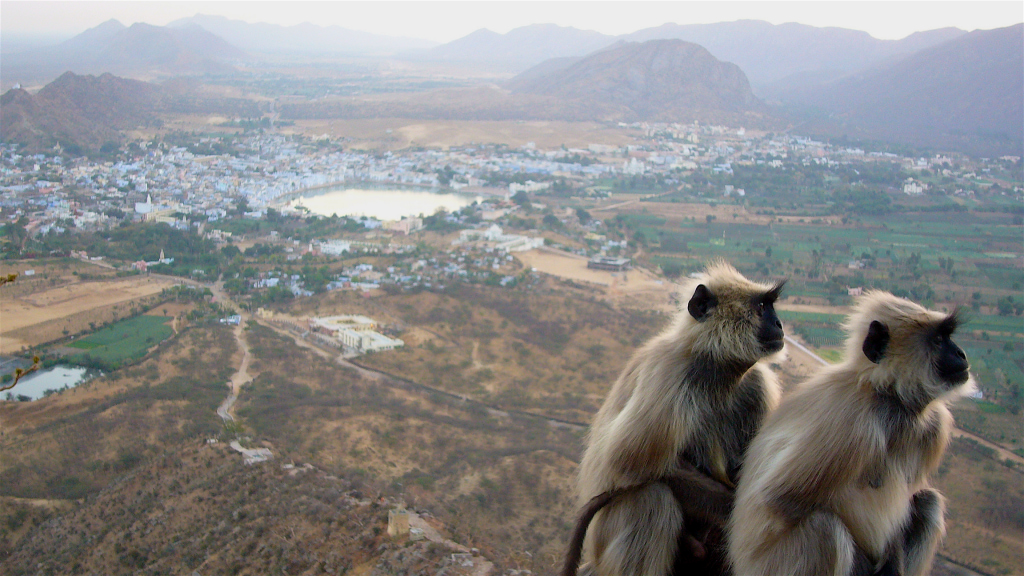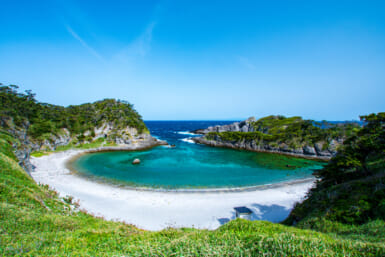Eco-Travel: India
by Danielle Rippingale
Whether you are seeking adventure in remote locales or looking for a holiday
filled with relaxation and pampering, India might just be the place for you.
Learn how to travel without compromising your ethics!
Eco-tourism is considered the fastest growing market in tourism and
focuses on local cultures, wilderness, volunteering, personal growth and
learning new ways to preserve and sustain the diversity of the world’s
natural and cultural environments. Responsible eco-tourism includes
programs that minimize the adverse effects of traditional tourism and
follow these basic principles:
• Minimize environmental impact
• Build environmental and cultural awareness and respect
• Provide positive experiences for both visitors and hosts
• Provide direct financial benefits for conservation
• Provide financial benefits, empower and enhance the cultural integrity of
local people
• Raise sensitivity to the political, environmental and social climate
• Support international human rights and labor agreements
If you are looking to rub shoulders with locals and challenge your worldview,
consider a trip that combines eco-sightseeing with a taste of volunteering.
Hands Up Holidays offers trips that are rated based on comfort and activity
level, and include an ‘Ultimate India—In Style’ trip and volunteer project
that involves teaching English or repairing and renovating in Old Delhi. This
14-day trip includes visits to the Taj Mahal, Chambal Nature Safari, Ranthambore
Tiger Reserve, the deserted city of Fatehpur Sikri, and the pink city of
Jaipur in Rajasthan and costs $5,700 (www.handsupholidays.com).
India offers many soft adventure tourism holiday options like camping in the
Himalayan belt (www.tigerpawadventures.com and www.treknraft.com)
and the jungles of Karnataka (www.junglelodges.com) to one of the finest
models of Eco-tourism in India, Camp Kyari (www.wildrift.com).
Before you go:
Learn about your destination by reading guidebooks, travel articles, histories,
and/or novels by local authors, and pay particular attention to
customs such as greetings, appropriate dress, eating behaviors, etc. Being
sensitive to these customs will foster positive encounters with locals and
enrich your trip. Turn your thermostat down and unplug chargers, computers,
entertainment systems or anything that can be activated by a remote
control (they draw power even when not in use).
Eco-tourism do’s and don’ts:
Do
• Ask your eco-tour operator, guide and/or the local authorities what their
guidelines are for limiting tourism’s impact on the environment and local
culture (e.g. remaining set distances away from wildlife).
• Seek out and support locally owned businesses to ensure maximum community
and conservation benefit from your spending.
• Leave the DEET at home and use mosquito repellent that is effective and
safe like Badger’s Bug Balm (www.badgerbalm.com).
• Leave skimpy tops and bad manners at home.
• Carry back all non-degradable litter, such as empty bottles, tins, plastic
bags, etc. for proper disposal.
• Observe the sanctity of holy sites, temples and local cultures.
• Cut noise pollution and don’t blare music in nature resorts, sanctuaries
and wildlife parks.
• If camping, watch where you squat! Make sure that the spot is at least 30
meters away from the water source and buried.
• Respect people’s privacy while taking photographs. Ask for prior permission
before taking a photograph.
Don’t
• Remove flora and fauna in the forms of cuttings, seeds or roots. It is illegal
and bio-diversity must be protected.
• Use pollutants such as detergent in streams or springs while washing
and bathing.
• Leave cigarette butts or make open fires in the forests.
• Tempt the locals, especially children, by offering them food or sweets
(among other concerns, dental care is a luxury few can afford).
RESOURCES:
www.ecotourism.org
www.incredibleindia.org
www.ecoindia.com
www.tourismconcern.org.uk
(useful links and
discussion of issues)
GREEN GLOSSARY:
Carbon Offset is a financial instrument aimed at a reduction
of greenhouse gas emissions (metric tons of carbon dioxide
equivalent, or CO2e) and can be purchased by companies,
governments or individuals to mitigate their own greenhouse gas
emissions (I.e. to comply with caps or for personal air travel).
ECO FACT:
In January 2009, Japan Airlines
became the fourth airline to
successfully test biofuels, in
a one-hour 747-300 flight test
using a B50 blend of camelina,
jatropha and algae-based biofuel.
by Danielle Rippingale
Whether you are seeking adventure in remote locales or looking for a holiday filled with relaxation and pampering, India might just be the place for you. Learn how to travel without compromising your ethics!
Eco-tourism is considered the fastest growing market in tourism and focuses on local cultures, wilderness, volunteering, personal growth and learning new ways to preserve and sustain the diversity of the world’s natural and cultural environments. Responsible eco-tourism includes programs that minimize the adverse effects of traditional tourism and follow these basic principles:
• Minimize environmental impact
• Build environmental and cultural awareness and respect
• Provide positive experiences for both visitors and hosts
• Provide direct financial benefits for conservation
• Provide financial benefits, empower and enhance the cultural integrity of local people
• Raise sensitivity to the political, environmental and social climate
• Support international human rights and labor agreements
If you are looking to rub shoulders with locals and challenge your worldview, consider a trip that combines eco-sightseeing with a taste of volunteering. Hands Up Holidays offers trips that are rated based on comfort and activity level, and include an ‘Ultimate India—In Style’ trip and volunteer project that involves teaching English or repairing and renovating in Old Delhi. This 14-day trip includes visits to the Taj Mahal, Chambal Nature Safari, Ranthambore Tiger Reserve, the deserted city of Fatehpur Sikri, and the pink city of Jaipur in Rajasthan and costs $5,700 (www.handsupholidays.com).
India offers many soft adventure tourism holiday options like camping in the Himalayan belt (www.tigerpawadventures.com and www.treknraft.com) nd the jungles of Karnataka (www.junglelodges.com) to one of the finest models of Eco-tourism in India, Camp Kyari (www.wildrift.com).
Before you go:
Learn about your destination by reading guidebooks, travel articles, histories, and/or novels by local authors, and pay particular attention to customs such as greetings, appropriate dress, eating behaviors, etc. Being sensitive to these customs will foster positive encounters with locals and enrich your trip. Turn your thermostat down and unplug chargers, computers, entertainment systems or anything that can be activated by a remote control (they draw power even when not in use).
Eco-tourism do’s and don’ts:
Do
• Ask your eco-tour operator, guide and/or the local authorities what their guidelines are for limiting tourism’s impact on the environment and local culture (e.g. remaining set distances away from wildlife).
• Seek out and support locally owned businesses to ensure maximum community and conservation benefit from your spending.
• Leave the DEET at home and use mosquito repellent that is effective and safe like Badger’s Bug Balm (www.badgerbalm.com).
• Leave skimpy tops and bad manners at home.
• Carry back all non-degradable litter, such as empty bottles, tins, plastic bags, etc. for proper disposal.
• Observe the sanctity of holy sites, temples and local cultures.
• Cut noise pollution and don’t blare music in nature resorts, sanctuaries and wildlife parks.
• If camping, watch where you squat! Make sure that the spot is at least 30 meters away from the water source and buried.
• Respect people’s privacy while taking photographs. Ask for prior permission before taking a photograph.
Don’t
• Remove flora and fauna in the forms of cuttings, seeds or roots. It is illegal and bio-diversity must be protected.
• Use pollutants such as detergent in streams or springs while washing and bathing.
• Leave cigarette butts or make open fires in the forests.
• Tempt the locals, especially children, by offering them food or sweets (among other concerns, dental care is a luxury few can afford).
RESOURCES:
www.ecotourism.org
www.incredibleindia.org
www.ecoindia.com
www.tourismconcern.org.uk
(useful links and discussion of issues)
GREEN GLOSSARY:
Carbon Offset is a financial instrument aimed at a reduction of greenhouse gas emissions (metric tons of carbon dioxide equivalent, or CO2e) and can be purchased by companies, governments or individuals to mitigate their own greenhouse gas emissions (I.e. to comply with caps or for personal air travel).
ECO FACT:
In January 2009, Japan Airlines became the fourth airline to successfully test biofuels, in a one-hour 747-300 flight test using a B50 blend of camelina, jatropha and algae-based biofuel.









